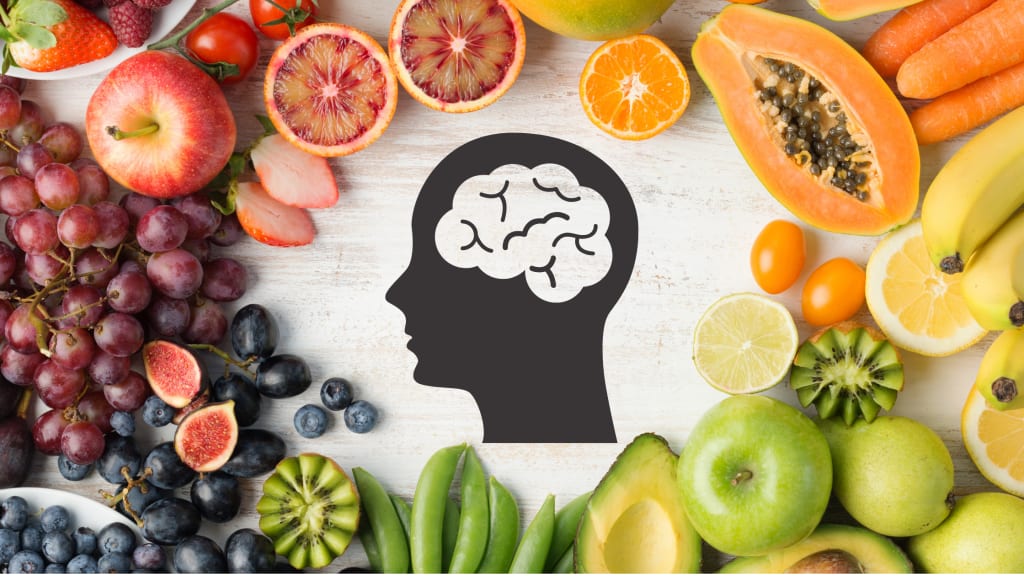The Impact of Nutrition and Healthy Habits on Brain Function
Fueling the Mind: Unleashing the Power of Nutrition and Healthy Habits for Optimal Brain Function

The Impact of Nutrition and Healthy Habits on Brain Function
The brain is the command center of our bodies, responsible for coordinating our thoughts, actions, and emotions. Just like any other organ, the brain requires proper nutrition and care to function optimally. The food we eat and our lifestyle habits have a profound impact on brain health and cognitive function. By adopting a nutritious diet and incorporating healthy habits, we can support our brain's well-being, enhance cognitive abilities, and promote overall mental health. This article explores the significant impact of nutrition and healthy habits on brain function and provides practical tips for improving brain health.
Nutrition plays a critical role in brain function. The brain relies on a constant supply of nutrients to fuel its activities and maintain its structure. Consuming a balanced diet that includes a variety of fruits, vegetables, whole grains, lean proteins, and healthy fats provides essential nutrients that support brain health. Nutrients like omega-3 fatty acids, antioxidants, vitamins, and minerals are particularly beneficial for cognitive function.
Omega-3 fatty acids, found in fatty fish, walnuts, flaxseeds, and chia seeds, are crucial for brain health. They contribute to the structure of brain cells and play a role in neurotransmitter function, which affects mood and cognition. Consuming foods rich in omega-3 fatty acids can improve memory, concentration, and overall cognitive performance.
Antioxidants, abundant in colorful fruits and vegetables, help protect the brain from oxidative stress and inflammation. They neutralize harmful free radicals and reduce the risk of age-related cognitive decline. Including a variety of berries, leafy greens, and colorful vegetables in your diet can provide a rich source of antioxidants for brain health.
Vitamins and minerals, such as B vitamins, vitamin E, and magnesium, also play a crucial role in brain function. B vitamins, found in whole grains, legumes, and leafy greens, support energy production and proper nerve function. Vitamin E, present in nuts, seeds, and vegetable oils, has antioxidant properties that protect brain cells. Magnesium, abundant in dark chocolate, nuts, and seeds, is essential for neurotransmitter function and helps regulate mood and memory.
In addition to nutrition, adopting healthy lifestyle habits positively impacts brain function. Regular physical exercise, such as aerobic activities or strength training, has numerous benefits for the brain. Exercise increases blood flow to the brain, promotes the release of growth factors that support neuron growth and connections, and improves mood and cognitive function. Engaging in regular physical activity can enhance memory, attention, and overall cognitive abilities.
Quality sleep is also crucial for brain health and cognitive function. During sleep, the brain consolidates memories, clears out waste products, and restores its energy levels. Chronic sleep deprivation can impair cognitive abilities, memory, and attention. Prioritizing a consistent sleep routine, creating a sleep-friendly environment, and practicing relaxation techniques before bed can promote better sleep and support optimal brain function.
Managing stress is another important aspect of maintaining brain health. Chronic stress can have detrimental effects on the brain, leading to memory problems, difficulties with focus, and an increased risk of mental health disorders. Incorporating stress management techniques like mindfulness meditation, deep breathing exercises, and engaging in activities that promote relaxation, such as yoga or hobbies, can help reduce stress and promote overall brain well-being.
Maintaining social connections and engaging in intellectually stimulating activities also benefit brain function. Social interaction stimulates the brain, enhances cognitive abilities, and reduces the risk of cognitive decline. Activities like reading, puzzles, learning new skills, and engaging in stimulating conversations challenge the brain and promote neural connections.
Hydration is often overlooked but critical for brain function. The brain is mostly composed of water, and dehydration can impair cognitive abilities, attention, and memory. Drinking enough water throughout the day is crucial for optimal brain function. Aim to consume at least 8 cups of water daily to stay hydrated and support brain health.
In conclusion, nutrition and healthy habits have a profound impact on brain function. By adopting a balanced diet rich in omega-3 fatty acids, antioxidants, vitamins, and minerals, and incorporating healthy lifestyle habits like regular exercise, quality sleep, stress management, social engagement, and staying hydrated, we can optimize brain health and enhance cognitive abilities. Taking care of our brain through proper nutrition and healthy habits is a lifelong investment in our mental well-being and intellectual potential.
About the Creator
Jenny Endino
Hi, my name is Jenny.
Unveiling fascinating facts, unraveling gripping mysteries, delivering timely news, and diving into the depths of physiology. Prepare to be captivated by a world of knowledge that will leave you hungry for more.






Comments
There are no comments for this story
Be the first to respond and start the conversation.